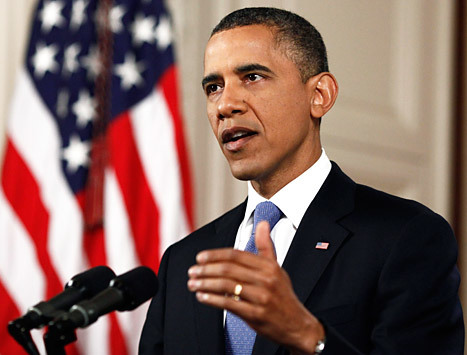Although President Obama promised that if you like your health care plan you can keep it, a new report shows more than half of all insurance plans for individuals in the United States won’t survive under his health care law.
According to the study from the Commonwealth Fund, published in Health Affairs and conducted by researchers at the University of Chicago and Towers Watson, more than half of the people who had individual health insurance in 2010 were enrolled in plans that won’t pass the new standards set up by Obama’s law.
Plans Can’t Meet Benchmarks
Beginning in 2014, each state must establish a health insurance exchange or allow the federal government to set one up. Exchange health plans must meet quality and coverage benchmarks which many individual plans today cannot achieve, according to Devon Herrick, a senior fellow with the National Center for Policy Analysis.
“When consumers purchase coverage on their own in the individual market, they often decide to forgo comprehensive coverage in favor of high-deductible plans. The health plans that will be available for sale in the yet-to-be-created State Health Insurance Exchanges will be more comprehensive than many Americans would choose when purchasing coverage on their own. The Affordable Care Act limits consumers’ options when deciding what they are willing to pay for,” said Herrick.
Dr. Roger Stark, a physician and health care policy analyst at the Washington Policy Center, says what President Obama promised in the debate over health care reform has been largely forgotten in the implementation of his law.
“ObamaCare requires a minimum benefit package in every health insurance policy sold in the country. High-deductible and catastrophic plans will not have the generous benefit package required by the government and will not qualify as acceptable plans,” said Stark.
More Coverage, Higher Cost
The insurance plans that are to be offered under ObamaCare through the health insurance exchanges are theoretically supposed to offer more care, better care, and for less money. This is a fantasy, says Dr. Hal Scherz, the president and founder of Docs 4 Patient Care.
“The health care law has just started to be implemented, and already we are seeing that people’s health care insurance premiums have gone up on average $2,000 per household, not decreased $2,500 as promised by the president,” Scherz said.
Scherz says the law’s requirements will result in plans which are far more generous than most individuals need.
“We also know that the law calls for phasing out of health care plans, like health savings accounts, which put more control into the hands of patients rather than in the hands of insurance companies,” said Scherz. “The centrally controlled, top-down structure of this plan also makes people pay more for insurance because they have to pay for things that they would never use but that the government tells them that they must have in their insurance policy. Why would a 50-year-old want maternity benefits?”
Unintended Consequences
Dr. Doug Perednia, a physician and author of Overhauling America’s Healthcare Machine, says the failure of individual plans to qualify is an unintended consequence of the law.
“The first question is whether it’s possible, other things equal, to find a way to reduce the cost and improve access to health insurance for people who do not have access to employer groups,” says Perednia.
Perednia says the exchanges envisioned before Obama’s law were designed to be true marketplaces flexible to people’s needs. Instead, the health care law restricts their choices through regulation.
“The law confuses the issue by requiring gold-plated coverage, community rating and a host of other factors that will tend to increase insurance costs for many people,” said Perednia. “The reason that most people have tin policies right now is because they’re affordable and save you a pile of money in premiums if you’re not sick all the time. This is a critical factor for most people who are just getting by on their incomes, especially in the presence of a recession that has been dragging on for years.”
The unintended consequence of this approach could be less coverage, according to Perednia.
“If the total health care costs are going to be higher under a law that basically outlaws low-cost, high deductible policies, many people are simply going to be unable to afford to pay for any insurance policy. Instead, they’ll simply have to go without insurance and pay a penalty to the government,” said Perednia. “This is not necessarily a desirable tradeoff; however, it’s the one the Democratic majority in Congress and the Obama administration decided to make on behalf of all Americans.”
Empowering Consumers is Key
Ultimately, says Jonathan Ingram, a health care policy analyst with the Illinois Policy Institute, Obama’s famous claim that you can keep your plan if you like it and that your premiums will go down, are just two more broken promises made to the American people.
“Even Jonathan Gruber, the chief architect of the law, acknowledges that most consumers in the individual market will pay more for their health insurance, despite massive new tax credits and subsidies. Some will see their premiums more than double,” said Ingram. “You simply can’t drive down premiums with more government mandates. If you want to drive down premiums, you need to empower consumers with the freedom to buy health plans that meet their own needs, not the needs of bureaucrats in Washington.”





